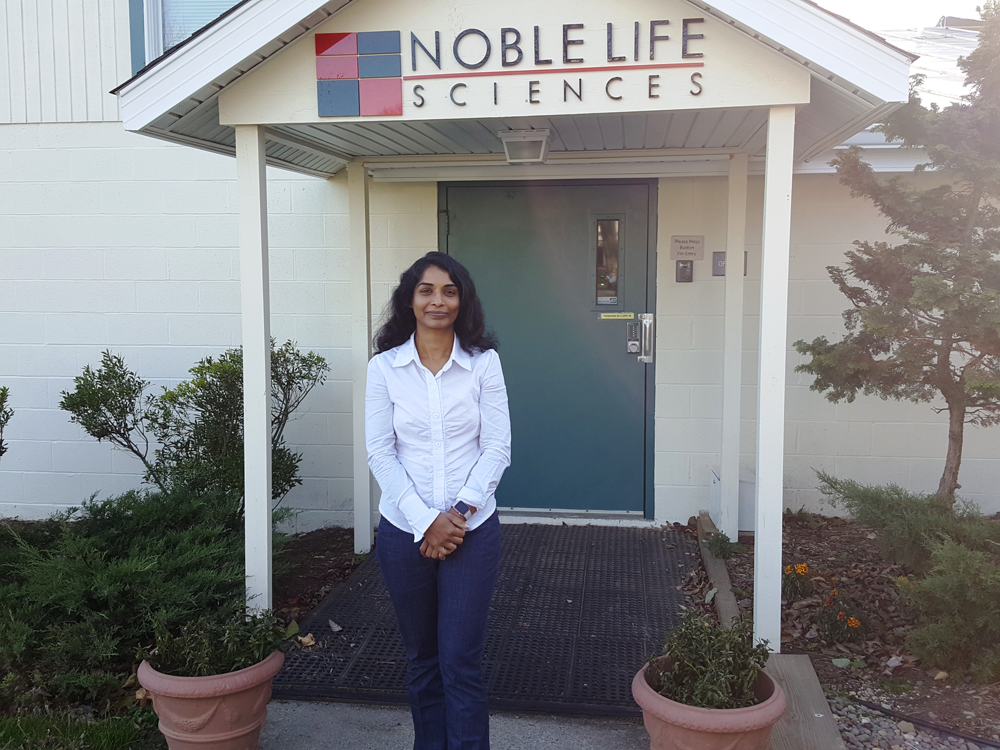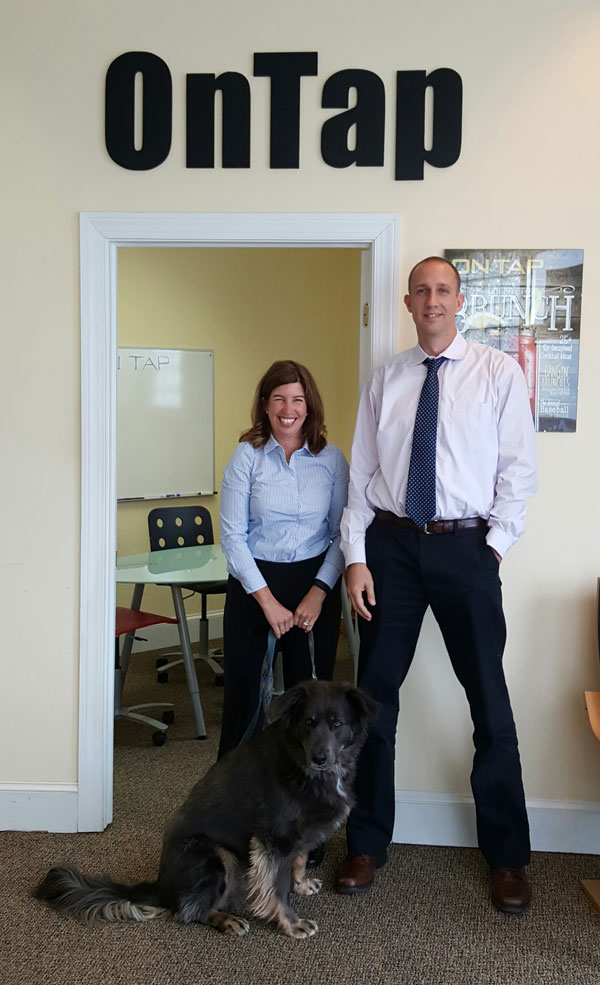
Noble Life Sciences
The Tech Council recently visited with Srujana Cherukuri, Sr. Vice President and Chief Operations Officer, of Noble Life Sciences. The company was founded in Gaithersburg and currently operates the business at their location, which is nestled in a picturesque valley in Sykesville in Carroll County, Maryland.
What services does Noble Life Sciences offer?
We provide integrated GLP and non-GLP preclinical services designed to accelerate development of drugs, vaccines, and medical devices. Our core services are disease and animal models in a wide range of mammalian species, toxicology, analytical and lab services, polyclonal antibody production, and drug evaluation services with significant expertise in the development of new drugs to treat cancer and infectious diseases.
Noble offers real-time, live animal imaging services with the IVIS Lumina series imager. This imaging tool is well suited for preclinical studies of new drugs to treat cancer and infectious diseases as well as cell and gene therapies. Our imaging capabilities also include a C-arm imaging scanner intensifier, radiography, computed tomography (CT), magnetic resonance imaging (MRI), and ultrasound.
Tell us about this location.
Spring Valley Laboratories, founded in 1980, was headquartered at this location, at first providing animal housing and antibody production services. Eventually, the company’s services expanded to include GLP-compliant services and large animal testing capabilities. Because Spring Valley’s services and capabilities were complementary to Noble’s small animal testing capabilities and in vitro drug discovery expertise, Noble acquired Spring Valley Laboratories in 2014. In 2015, we consolidated operations at this site. The facility consists of 24,000 square feet of animal housing, support, and lab space on a 25-acre campus. The support space includes two surgical suites with recovery room and intensive care area; labs for clinical pathology, specimen analysis, and necropsy; and areas for test article storage and secure-access controlled archives.

How is Noble different from other companies in this arena?
The key for us is to offer flexibility and competitive pricing to our clients backed by strong scientific experience. In addition, Noble provides high quality and customized services to our clients allowing our clients to participate in their studies. For example, a medical device company may want to use our animals and technicians but have their surgeon conduct the testing of their device. We provide the resources, but they conduct the study. We offer our clients a full range of options including assistance with study design and program development based on our scientific expertise and extensive experience in drug development and medical devices.
What type of support do you offer to startups?
We offer quite a few resources to startups. As anyone in a startup can tell you, it’s not always possible to hire a lot of people and the staff doesn’t always have the scientific expertise that’s needed to plan and conduct a study. So we walk them through the process and help them in preclinical program development. We also help companies with grant applications. For example, we can help them prepare a budget, develop an animal-use protocol, and provide them with a support letter.
Do you see any trends in CROs?
Partnering is popular now because many CROs do not provide a full range of services. For example, a CRO may have most of the capabilities needed to meet their clients’ needs but not have large animal capabilities or a surgical suite. In such a case, the CRO might partner with Noble to offer a more complete package of services. This is a good model for clients who want to have their study managed by one CRO and receive a single report.
What’s in the future for Noble?
We want to grow our business by offering our clients high quality, cost effective preclinical services. We will be increasing our sales and marketing presence as well as continuing to expand our technology platform to add more value to our clients.
We’re also excited about a new externship program that we developed with Johns Hopkins University and the National Institutes of Health. Through this program we offer full-time Ph.D. candidates non-academic experience for 6-12 months. After they are trained in our sales process, they spend 10 hours a week helping us to increase our client base by using their scientific background and their sales training. The externs benefit because they gain business development experience and can explore alternate career paths which they may pursue in the future.
Have you utilized any of the Tech Council’s benefits?
Absolutely, we’ve taken advantage of the VWR member discount program for years and see that as a big benefit.
Who can Tech Council members contact for more information?
They can contact me at my business number 410.795.2222 or my cell 301.642.7826 or at scherukuri@noblelifesci.com.



 On Tap Media
On Tap Media